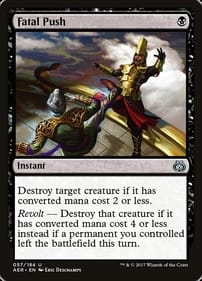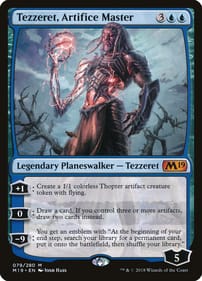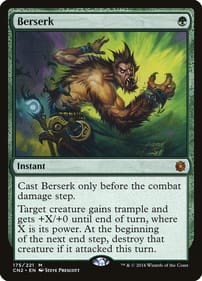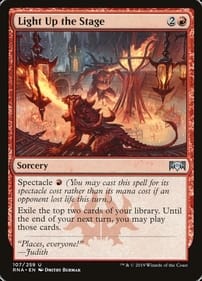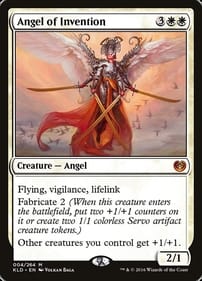Game Store Life #2: The odds are against you

So, in my last article I said if you are thinking of opening your own store, that you shouldn’t. Most game stores fail within 2-3 years, and by most, I mean around 75%, give or take as there aren’t exactly a lot of studies on this type of industry. If you are still feeling that itch though, I guess more details can be given to try and convince you on why you shouldn’t do it.
The main one out of the gate is under capitalization. If you’re going to do it, have the money to do it. I don’t just mean the money to by the stuff, but also the money to operate for at least 6 months at a loss. Here’s the kicker, I have no idea what that number is, no one really does. Here are so many variables such as location, size, target demographic, what kind of store you want to be, how many people you’ll have to pay.
For our purposes though, let’s look at a simple example. A 1000 square foot space in a medium sized city. We’ll keep the number simple just for the example. Say it’s $1000 a month rent, utilities another $500, and you’re going to run it yourself for free for a while because you have a regular job. So, $1500 a month overhead. We’ll say in this case the $500 covers electric, internet, insurance, and all that jazz, again keeping it simple, and if you ask 10 shop owners 9.5 of them could only dream of it being this cheap.
Now, your profit margin is usually between 25% and 40% depending on brand, shipping, ect. This is straight profit after cost of goods (COG), we’ll just say it’s 30% for this example to keep it easy. So, to cover your monthly overhead of $1500 you need to gross $5000 a month. That is your target number at the 6-month point. Sounds simple? Sure, but this is as low as you can go. You’re going to want $6000 in the bank to cover those first six months of operating expenses. You’ll also need deposits, so there is $1000 for the landlord, and likely another $500 depending on utility companies, security system, or whatever, again keeping it simple.
We’re at $7000 now and haven’t even put anything in the place yet. Now go buy some fixtures, even if you go bargain hunting, that will be at least $3000, then all the incidentals, cleaning supplies, snacks, toilet paper, and all that, another $1000. So, you’re $11000 in and still have to get stuff to sell. Let’s say you have nothing to bring to start. Minimum of $25000 in inventory. We’re at $36000 now. The usual consensus is that you need a minimum of $50000 to open a small shop, and that isn’t counting cash reserves. Even if you have stuff set aside to sell.
You can try for a bank loan, good luck. Better have a good business plan and even then, you likely won’t get it. Funding is hard to get and even then, terms are not usually the best. Avoid going to family or friends, that will end poorly. It’s also a headache. I borrowed $3000 from family to open my second store (I had all the stuff to put in it already) and that was semi-sloppy, and I just needed it for deposits and signage.
That is just a basic idea of how much it will run you to get started, and that is a low estimate for a hypothetical situation. For our next example, and I think the biggest, we will address the gamer that opens a store. How can that be a bad thing, you ask? I will tell you, and by gamer, I mean someone that opens a store to game. I am a gamer, but when it comes to my stores, I am a business owner. When I say a gamer opening a store, I mean they are also a gamer when working in said store.
Issue one is that they use the store and its money to get stuff for themselves. This takes away from the business side. Especially, if they want product that is heavily allocated, as has been the case these past couple of years. A new Pokemon set comes out, the store can only get 18 boxes and the owner keeps 4 for themselves. That is a loss of say $120 a box to the store, so $480, the loss of the $160 profit in not a huge deal, but the $320 loss in product is bigger.
This causes 2 issues: 1) people will know your place never seems to get enough product and will go where they can get it 2) the store is losing money, it had to sell over $1000 in product to get the $320 to buy those boxes, now that’s all gone.
There are ways to make this work, I mean I do this, as in I pay myself in product, BUT I pay cost for the stuff I take. In other words, I reimburse the store for what I take. The other thing I do is never take stuff that is hard to get. If an item is allocated the store gets it first, if I do get it, it will be from a restock later down the road. The business always comes first. And what I do get, I order extra to cover my wants, so the store never lacks for that product.
The 3rd thing is bad reasoning or poor planning. This is when someone opens a store to run the other store or stores out of business. This can be with intent or just ego. If there are other stores in town and you just don’t want to have one far away, that is a bad reason. If the current store upset you and you open out of spite, you will lose 99% of the time. You need to know competition, even if they are competition, and what they do to succeed.
Most store owners are usually more than happy to talk with you. And if you are planning on being a board game café, while the other shop in town is all card games, you can not only avoid stepping each other’s toes, but even work together in a way to help each other. Not everyone has to be a competitor, even if there is a little overlap. This isn’t Wall Street, there is no need to be cutthroat.
The 4th thing is a total lack of knowledge. Even if you read all the business books out there, it still isn’t enough. I have only been able to find 3 books that relate to this industry, and a couple of others that could apply. I learned a lot, and I have a business degree. Also, talk to everyone you can meet that knows about this stuff, and join groups on social media and learn.
This is a long process, even with years of planning, most will still fail because they missed something major. One of those things is wholesalers. I am in groups where people only have 2 or 3 wholesalers, and others that wait to apply for accounts AFTER they open. Getting an account is a process and having to pay rent while waiting is just silly. These are things you need in place before you even sign a lease. I have over 25 wholesalers and am always looking for more.
The lease is another thing, people usually sign it because they are excited and don’t know any better. A commercial lease is open for negotiation. Make sure you aren’t getting the bad end of the deal. Lawyers are good here, and expensive, add that to your start up costs. But it may save you headache in the long run and even money.
A 4th thing that is kind of minor is the atmosphere one has at their shop. Is it going to be a business or a hangout? There is a balance to be had here people can show up and have fun, but this could also lead to cliques that could alienate others. Just noting this here, but if the owner is just hanging out with their friends, then the word will spread, and a lot of new faces won’t come in.
All the reasons I covered here are not complete by any means, in fact each of them could be their own multi-part series, but I am keeping it simple to make the points. I may revisit down the road and add more detail, but most will get the general idea. There are other basic reasons a swell, like burnout. Unless you have a perfected system, how ever long you are open each week, plan to add 50% more time to your schedule to run the place. There are a lot of after-hours stuff that needs to be done. This can be alleviated by hiring people, not just workers, I mean accountant, social media person, etc. But this adds up fast and unless you have the money to sink in or have started off making a good profit (which is rare) then a lot will fall on you as you assemble your team and just learn the best way to do a lot of these things.
From this point out I will be mixing articles from talking about how I am going about setting up my new store (a real-world example) to more general informational articles like this one.
That’s it for today, ran a little longer than I thought.
D. Rowland
Owner CCGPrime.com



